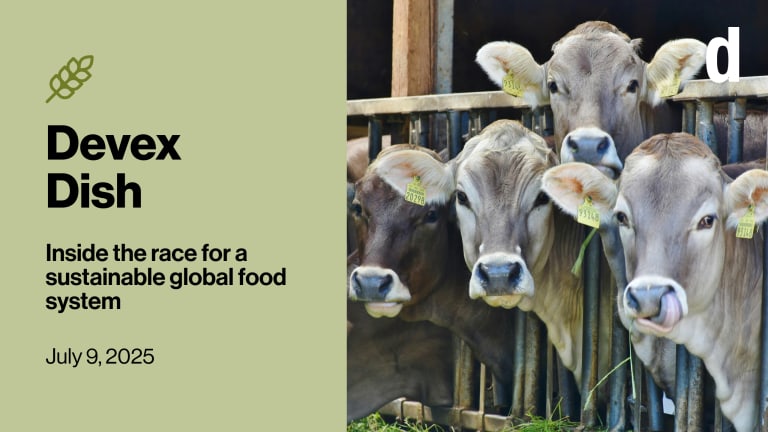
Trends are showing just how rapidly spillover of zoonotic diseases can spread around the world, wreaking havoc in their wake. Ebola became a global concern within weeks in 2014, as did coronavirus in 2020, despite travel bans to curb exposure.
A temporal analysis of emerging infectious diseases, like COVID-19, shows an exponential rise, with more than half a result of zoonotic transmission. Of those, almost 72% originate in wildlife. Currently, an average of two illnesses per year spread from animals to humans. The threat of zoonotic pandemics is only growing.
Global development is moving toward greater integration across sectors in recognition that complex, transboundary problems like this require transdisciplinary solutions. The cross-sectoral “One Health” approach, which gained traction in response to COVID-19, is an encouraging framework that many donors and development actors are beginning to adopt.
As a research institute and global development organization, RTI International aims to leverage evidence and data to enhance development outcomes and impact. The benefits of integrating conservation and global health — and other key sectors — have become apparent in our work. But science and data can only take us so far. Now, practitioners must figure out how to put this knowledge into practice.
Why now?
Emerging infectious diseases present a significant — and growing — burden to global economies and public health, and are likely to rise with demand on natural resources and encroachment on wildlife habitats. One Health recognizes this in its focus on the interdependence of human, animal, and ecosystem health.
Building on the urgency of this moment is important, but so is long-term commitment and action as the threat of zoonotic pandemics isn’t going away.
—However, the dynamic relationships between communities — including indigenous and forest-reliant ones — flora and fauna, and the environment do not match how we’ve structured our working relationships in development.
We must consider how we can better cooperate, collaborate, and coordinate between conservation and global health when the structures and norms governing these areas at local, regional, and global levels are not set up for effective integration.

Toward a more integrated approach
Global health and conservation have a lot to gain from integration. Conservation, which addresses wildlife trafficking and encroachment, is central to containing zoonotic spillovers. The global health sector’s expertise in behavior change, disease surveillance, labs and testing, and response planning would greatly benefit communities living in and near areas where zoonotic spillovers are likely, including markets where wildlife are traded.
The world needs leaders and practitioners to take concerted action to share information, tools, personnel, and resources more proactively between these sectors. Coordinating bodies need to be established at global and regional levels to fully realize the potential of the One Health approach. This will require ownership and buy-in from existing institutions and leaders, such as the United Nations and donors.
Momentum is building: The World Health Organization recently began negotiations on a global accord for pandemic preparedness that would include prevention of zoonotic spillover and the Association of Southeast Asian Nations is discussing a strategy for preventing spillover from wildlife trade in its member states.
The challenges inherent to countering wildlife trafficking — such as supply and demand that cross continents and require action across the value chain — as well as global health — such as the fact that a disease or illness in one part of the world rarely stays there — are precisely why a global coordinating body is needed, as well as regional bodies that can address the specific challenges, needs, and opportunities at regional and country levels.
Shifting behavior to meet the moment
Through our work in Southeast Asia and East Africa, we’ve seen that while regional cooperation on these issues continues to improve, gaps remain in implementation and effective coordination. Filling these gaps will require more than just the knowledge that integration is important, and policy development. Since our structures in development are not set up for effective integration, it will require a shift in cultures, norms, and behaviors, which underlie change in any sector or institution.
For example, there are currently no systematic ways for leveraging the expertise of human and animal health experts across conservation and global health — this is one area practitioners could prioritize to ensure there is exchange of information, ideas, and solutions that prepare us to face the next pandemic and limit its economic ramifications. It would also complement action on developing global and regional bodies that drive coordination and position integration as a long-term priority even after the urgency of the current pandemic subsides.
Recognizing the importance and urgency of cross-sectoral and interdisciplinary approaches, RTI recently embarked on better integrating its own environment, which includes conservation as well as biodiversity and natural resource management, and global health practices. We are eager to exchange lessons learned and best practices with organizations doing the same.
Working together to prevent pandemics
It will take more systematic ways of cooperating, collaborating, and coordinating across global health and conservation to address zoonotic spillover and its effects on planetary — holistic — health. While practitioners wait for structural changes that optimize integration, we must take intentional action to change our behavior, cultures, and norms to enhance and drive it to meet the need at hand. Building on the urgency of this moment is important, but so is long-term commitment and action as the threat of zoonotic pandemics isn’t going away.
If the world rises to meet this challenge, it would be transformational not just for countering wildlife trafficking and protecting biodiversity, but also for protecting human health and the global economy in a world where zoonotic spillover is a constant threat.
RTI International is both a global research institute and a leading international development organization. We combine these powerful capabilities with those of our partners to co-create smart, shared solutions for a more prosperous, equitable, and resilient world. Learn more about our work in combating wildlife trafficking and environmental conservation.










